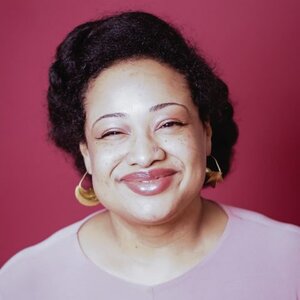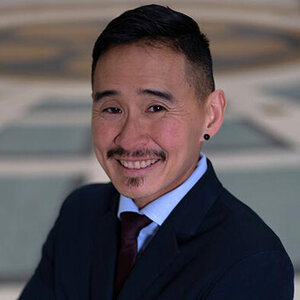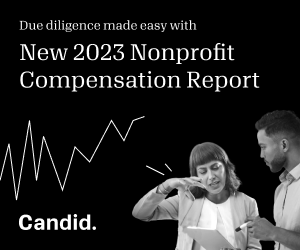Carrying on the changemaking legacy of Harvey Milk

“All I ask is for the movement to continue.” Those are the words of Harvey Milk, a San Francisco city supervisor, one of the first openly gay elected officials in the United States, who was assassinated in 1978.
Milk’s work was just the beginning of a long, arduous fight for the rights of the LGBTQIA+ community. As the community weathered the AIDS crisis and an onslaught of anti-gay legislation throughout the ’80s and ’90s, the importance of his influence became even more evident in his absence.
In the 45 years since Milk was killed by disgraced fellow supervisor Dan White, the LGBTQIA+ community has fought to carry on his legacy. Today we face a renewed fervor for anti-LGBTQIA+ bigotry and legislation, over 400 of which were introduced between 2022 and 2023—a record number. Milk’s influence is even more necessary now, as the community faces the toughest opposition in decades. His voice is echoed in the cries for equality in every rally in front of every state house.
Milk’s legacy of milestones
Although Milk was not the first openly gay politician in the U.S. (that honor goes to Michigan’s Kathy Kozachenko), his animated way of speaking and near-frantic demand of the spotlight solidified his position as a gay icon almost immediately. With Milk’s help, the first gay rights initiative in the country was passed—a bill that banned discrimination in public accommodations, housing, and employment for gay people. Milk was also instrumental in striking down Proposition 6, a ballot initiative that would have barred gays and lesbians from working in California schools.
The failure of Proposition 6 marked a turning point for the LGBTQIA+ community, allowing them to take their rightful places in positions of leadership. However, its echoes can still be felt in anti-LGBTQIA+ legislation being passed today, such as Florida’s recent “Don’t Say Gay” bill, which outlaws “classroom instruction by school personnel or third parties on sexual orientation or gender identity” and “restricts transition-related care for minors.”
Milk demanded a seat at the table for all LGBTQIA+ people, and when he was rebuffed, he brought his own chair. Following his example, a record number of LGBTQIA+ candidates won midterm elections in 2022, and an increasing number of community members continue to run for policy-making positions.
Carrying a legacy forward
While Milk’s work has not been forgotten, reminders of the trail he blazed are needed more than ever in light of the current deluge of anti-LGBTQIA+ legislation hitting every state.
Today, the voices against the gay community may seem louder and more vicious—spurred on by social media and a relentless news cycle. It is this particular viciousness and relentlessness that needs to be the focus of initiatives, support, and strategy building.
There are many ways foundations, community leaders, and allies can follow Milk’s lead. Milk’s campaigns for public office and outspoken advocacy in the community in which he lived sparked a movement among the Castro’s young gay community. His push for equality in schools and workplaces in California made great strides for a community that was greatly maligned in the ’70s. Today there are groups such as The Trevor Project, which provides crucial (and sometimes life-saving) assistance to LGBTQIA+ youth, Out & Equal, which advocates for workplace equity so members of the LGBTQIA+ community can reach their fullest potential, and Publicly Private, which advocates for confidential support and offers health supplies to the LGBTQIA+ community. These groups serving the needs of young people and marginalized employees are directly connected to the work of Milk.
Similarly, organizations such as GLAAD—founded in 1985 to combat the negative representation of AIDS in the media—rose out of the AIDS crisis of the ’80s. Although Milk died before the crisis arose, his ability to draw the attention of the media to the needs of the community is echoed in the work of groups like GLAAD.
The parameters of the LGBTQIA+ community have shifted since Milk’s time, with trans, queer, asexual, intersex, and questioning members of the community becoming more vocal and more involved in the movement overall. It is the initiatives supporting members of the community who were not acknowledged for so long that need specific attention. By shining a spotlight on those who have been long overlooked, the community and allies are opening up access to much-needed attention and funding.
Where do we go from here?
To support groups that are carrying the flag of equality that Milk took up nearly half a century ago, organizations and individuals must take more courageous stances than they have in the past. Having large brands, organizations, employers, and even government officials take strong, clear positions in support of the LGBTQIA+ community makes all the difference in furthering the fight for equal rights.
With a number of states passing laws banning gender-affirming care and the U.S. Supreme Court recently upholding a business’s right to refuse service to the LGBTQIA+ community, more people are seeking to relocate to less hostile places—even if that means leaving their home state or even the country. For example, groups such as The Human Rights Campaign provide financial support for those who are relocating due to discriminatory laws.
Organizations providing emergency outreach to LGBTQIA+ people who are in immediate need are the groups most in need of financial support—and not just within the often rainbow-washed confines of Pride month. Support must be sustained and ongoing, with a focus on doing the most good for the most people.
Although Milk’s legacy lives on through well-known advocates such as Laverne Cox, Zooey Zephyr, and Pete Buttigieg, there is still work to be done. His trailblazing public service and outspoken advocacy efforts were just the beginning of an ongoing fight for the equal rights and treatment of everyone in the LGBTQIA+ community.
In the face of the resurgence of discriminatory laws and hateful rhetoric, Milk’s legacy can inspire and inform the community and its allies in taking a brave stance against bigotry.
Kollyn Conrad is the founder and executive director of Publicly Private, a nonprofit organization offering supplies, support, and empowerment to the LGBTQIA+ community.








Meet the Southern warriors for the future we deserve